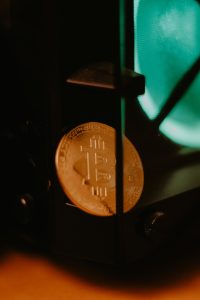The Forex market is one of the largest and most liquid financial markets in the world. It is a decentralized market where currencies are traded 24 hours a day, 5 days a week. Forex trading is becoming increasingly popular among retail traders who are looking to make a profit by buying and selling currencies. However, one of the most common questions that new traders ask is how much money they should have in the Forex market.
The answer to this question is not straightforward, as it depends on several factors such as the trader’s trading style, risk tolerance, and trading experience. However, there are some general guidelines that traders can follow to determine how much money they should have in the Forex market.
Firstly, traders should consider the size of their trading account. The amount of money a trader has in their account will determine the amount of leverage they can use. Leverage is a tool that allows traders to control larger amounts of currency than they have in their account. For example, if a trader has $1,000 in their account and uses 100:1 leverage, they can control a position of $100,000.
While leverage can increase profits, it can also increase losses. Therefore, it is important for traders to use leverage responsibly and not overextend themselves. As a general rule, traders should not use more than 1% to 2% of their account balance per trade. This means that if a trader has a $10,000 account, they should not risk more than $100 to $200 per trade.
Secondly, traders should consider their trading style. Different trading styles require different amounts of capital. For example, a day trader who makes multiple trades per day will require more capital than a swing trader who holds positions for several days or weeks. Day traders need to have enough capital to cover their margin requirements and the potential losses that can occur during volatile market conditions.
On the other hand, swing traders can hold positions for longer periods, which allows them to have smaller positions and use less leverage. However, swing trading requires a larger stop loss, which means that traders need to have enough capital to cover potential losses.
Thirdly, traders should consider their risk tolerance. Forex trading involves a significant amount of risk, and traders need to be comfortable with the amount of risk they are taking. Traders who are risk-averse may prefer to use less leverage and have larger stop losses, while traders who are comfortable with risk may use more leverage and have smaller stop losses.
Lastly, traders should consider their trading experience. Beginner traders should start with a smaller account size and use lower leverage until they gain more experience and confidence in their trading strategy. As traders become more experienced, they can gradually increase their account size and leverage.
In conclusion, there is no set amount of money that traders should have in the Forex market. Traders should consider their account size, trading style, risk tolerance, and trading experience when determining how much money they should have in the market. It is important for traders to use leverage responsibly and not overextend themselves. Forex trading involves a significant amount of risk, and traders should only risk money that they can afford to lose.






